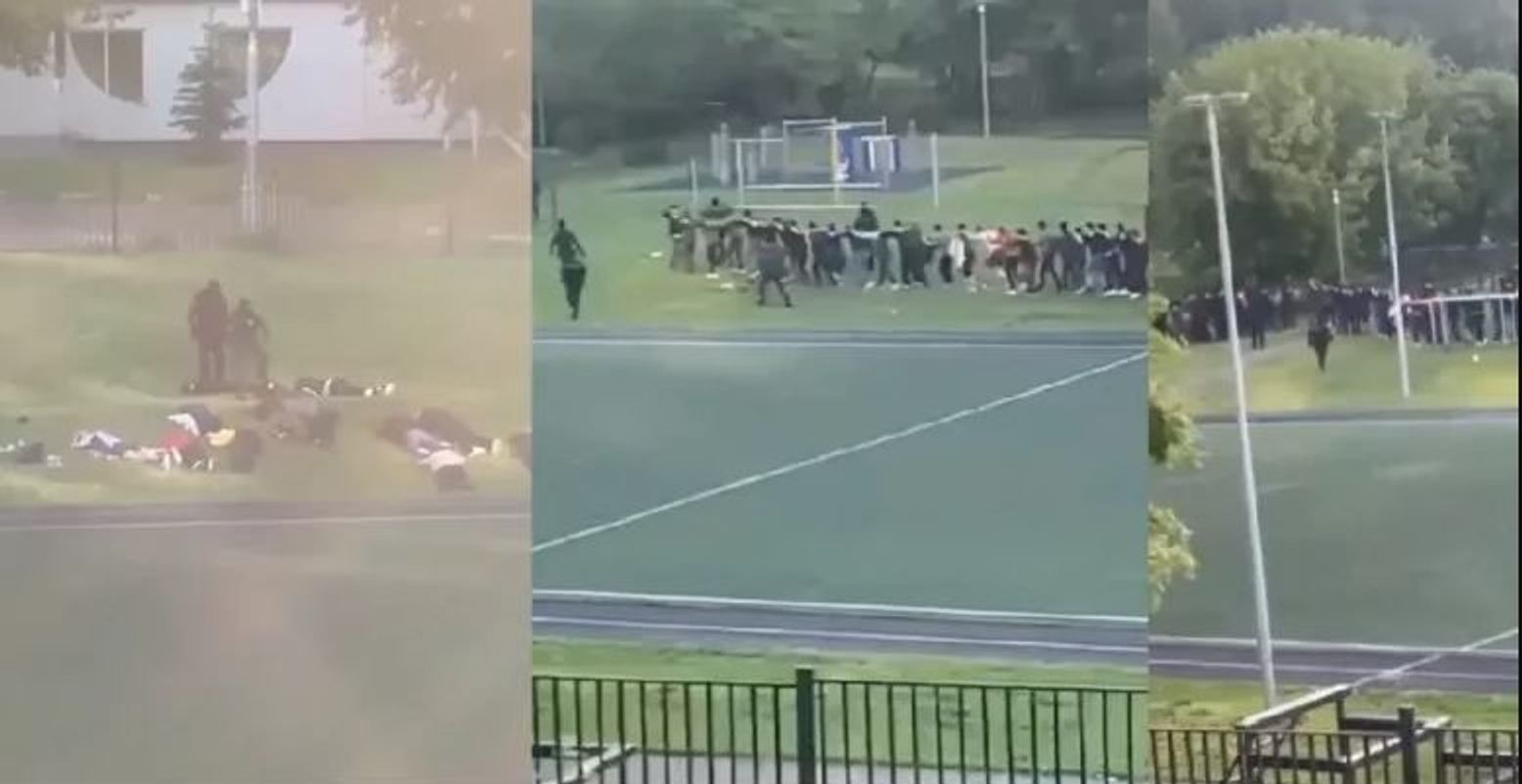
50 citizens of Tajikistan have been detained in the town of Krasnogorsk in the Moscow region, according to a report by Radio Liberty affiliate Radio Ozodi. According to the publication, the group was detained at a construction site on June 1.
The publication noted that mass detentions similar to the one in Krasnogorsk have become more frequent in recent days in multiple Russian regions – most of these incidents have occurred in Moscow, St. Petersburg and Khabarovsk. Radio Ozodi also published videos showing people sitting on their knees with their hands on the back of their heads being kicked by members of Russia’s security forces.
“Arrests and the mistreatment of migrant workers in Russia have increased in recent days. Every day users send photos and videos and complain that despite the fact that their documents are in order, the Russian police and special forces humiliatingly detain them and take them to police stations,” the video description reads.
On May 19 this year, over a hundred Tajik students at a state university in Komsomolsk-on-Amur in the Khabarovsk region were beaten by Russian riot police. Students said riot police stormed into their dormitory without any warning, and began deliberately singling out Tajik students and beating them. The Embassy of Tajikistan in Moscow reported that 10 people were injured as a result of the actions of the riot police.
On May 29, a video showing Tajik migrants being removed from a school stadium in Moscow’s Mozhaisk district was published on social media. They were accused of violating residence rules, disorderly conduct, and disobeying the order of a police officer.

On May 30, law enforcers detained over 150 Tajik migrants in Moscow near Mitino metro station. According to the migrants, they were working at a construction site near the station and lived in construction trailers there.
Russian Ambassador to Tajikistan Semyon Grigoriev was summoned to the Tajik Foreign Ministry, where he was informed of Tajikistan’s concern about the increasingly frequent detainments and beatings.
Group 24, an organization opposed to the Tajik government, called the behavior of Russian law enforcement officers toward Tajik immigrants “cruel” and “inhumane.” The organization also criticized the “inaction” and “silence” of Tajik government representatives in the face of these events.
“The Tajik authorities, as always, do not take concrete measures to protect the rights of their citizens in Russia. They are so dependent on Putin that they can do nothing but express concern or request an investigation,” Group 24 said in a statement.
The Russian authorities have not commented or explained the mass detentions of Tajik citizens. Independent political analyst Parviz Mullojanov believes the campaign was likely launched to force Tajikistan to join the Eurasian Economic Union. He suggests that the issue was raised during Tajikistan President Emomali Rakhmon's recent Victory Day visit to Moscow on May 9.
“There hasn't been such a planned and large-scale attack since 2011. At that time, the case of the Russian pilots was being considered in Tajikistan,” Mullojanov said.
In 2011, a Tajik court sentenced a Russian citizen, a pilot named Vladimir Sadovnichy, and his Estonian colleague to eight and a half years in prison on what Russia says were trumped-up charges of illegally entering Tajikistan and smuggling a plane engine. The decision sparked reprisals in Russia, with immigration agents detaining hundreds of ethnic Tajiks and threatening them with deportation. Russia’s pressure resulted in the men being released.
According to Mullojanov, in addition to Tajiks, citizens of other Commonwealth of Independent States (CIS) countries also lived in the areas where the detentions took place, but they were not attacked.
There are currently nine full member states in the CIS: Armenia, Azerbaijan, Belarus, Kazakhstan, Kyrgyzstan, Moldova, Russia, Tajikistan, and Uzbekistan. Turkmenistan and Ukraine are so-called “founding states” but not full members, and Kyiv stopped participating after the annexation of Crimea in 2014 before withdrawing all its representatives in 2018. Georgia left the organization after the 2008 Russian-Georgian war. Moldova has repeatedly stated its intentions to withdraw from the union.